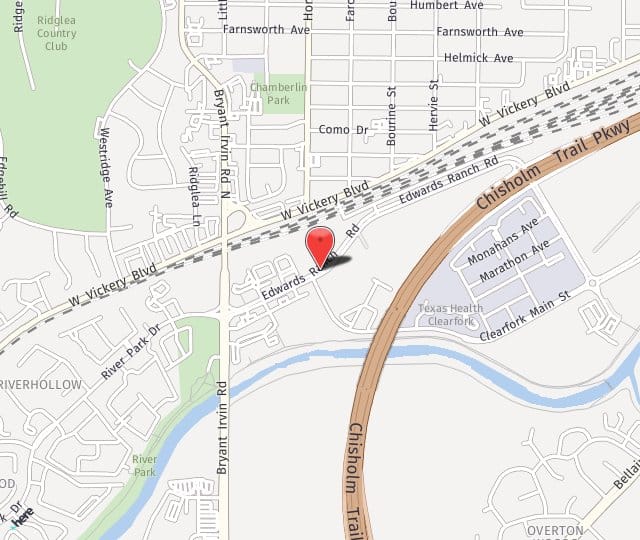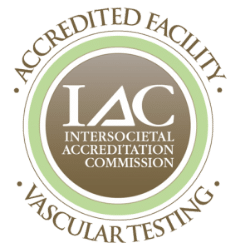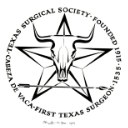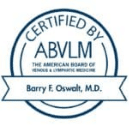Healing a venous ulcer takes more than just wound care — it requires treating the underlying venous disease. Without proper treatment, these ulcers can linger for months or even years. That’s why choosing the right specialist matters.
Dr. Barry Oswalt, MD, FACS, is a board-certified expert in venous and lymphatic medicine with years of experience treating vein conditions. At Fort Worth Vein Center, he provides advanced, minimally invasive treatments in Fort Worth, Texas, helping patients heal faster and prevent future ulcers.
What Is a Venous Ulcer?
A venous ulcer is a shallow skin wound that develops when the veins don’t return blood back toward the heart as they normally would (a condition called venous insufficiency).
These ulcers usually develop on the sides of the lower leg, above the ankle, and below the calf. Venous skin ulcers, also called stasis leg ulcers, heal slowly and often come back without preventative treatment.
What Causes Venous Ulcers?
Veins have one-way valves that keep blood circulating to the heart. In venous insufficiency, the valves are damaged, and blood backs up and pools in the vein. The increased pressure in the vein causes inflammation. As the inflammation spreads out from the vein, it damages the tissue, which can lead to ulceration.
What Are the Symptoms?
Recognizing these signs can help prevent complications and speed up healing:
- Skin may turn dark red or purple in the affected area.
- Skin can become thick, dry, and itchy.
- Untreated areas may develop painful ulcers.
- Legs may swell and feel sore.
- Infected ulcers may have an odor and drain pus.
- The area around the wound may become red and tender.
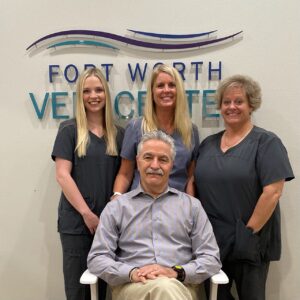
If you notice any of these symptoms, seek treatment as soon as possible to prevent the ulcers from worsening. Smaller and newer ulcers heal faster with the right care.
How Are Venous Skin Ulcers Diagnosed?
Dr. Oswalt will ask questions about your health and will examine affected areas. He may also perform ultrasound testing. All can be done within the comfort of the office.
Dr. Oswalt may use other tests to check for problems related to venous skin ulcers or to recheck the ulcer if it does not heal within a few weeks after starting treatment.
What Are the Risk Factors for Developing Venous Ulcers?
There are a number of reasons you may be more susceptible to developing venous ulcers. Clinical data indicate that this condition is more common among people who:
- Are older. One in 50 adults over the age of 80 develop this condition.
- Are diabetic.
- Have had multiple pregnancies.
- Are female.
- Are clinically obese.
- Have had a previous leg injury.
- Have phlebitis (vein inflammation).
- Smoke.
- Have an inactive lifestyle.
Having varicose veins or chronic venous insufficiency also creates a higher risk of developing venous ulcers, especially if those conditions are not attended to in the proper timeframe.
Varicose veins are the bulging, ropey veins that form due to the accumulation of blood in them.
Chronic venous insufficiency is the broader condition in which blood does not move efficiently out of the lower extremities, causing pooling to happen. These conditions involve swelling of affected veins, which can press against the skin and create sores.
How Are Venous Ulcers Treated?
In many situations, venous ulcers don’t require comprehensive treatment. Our priority is to prevent infection and promote expedited healing as much as possible.
In addition to debriding the wound and applying appropriate topical medication, Dr. Oswalt may:
- Prescribe antibiotics for you to take to prevent infection systemically.
- Prescribe advanced wound care management, such as the use of an antiseptic or antimicrobial.
- Perform skin grafting for optimal repair of more severe ulcers.
In addition to treating the ulcer itself, Dr. Oswalt will explain the value of appropriate vein treatment, especially when the venous ulcer is caused by varicose veins. In these instances, treating the vein can significantly reduce the chances of the venous ulcer returning.
What Should I Do if I Notice What Looks Like a Venous Ulcer?
The best time to act on venous ulcers is when you first begin to notice the signs that one may be forming. This may include slight discoloration or a bruised appearance over a varicose vein. It is not wise to attempt to treat a venous ulcer on your own.
However, until you can see Dr. Oswalt for a full examination, you may do the following:
- Clean the wound as well as the tissue around it a few times a day.

- Use antibacterial soap and apply antibacterial ointment to the wound after cleansing the skin.
- Apply a dressing like a gauze pad over the ulcer to keep it free of debris.
- Wear compression stockings to help move blood out of the legs.
Do not put off seeing the doctor for your venous ulcer. Clinical treatment may vary significantly from the remedies you can perform at home.
Why Choose Forth Worth Vein Center?
At Fort Worth Vein Center, you’ll see Dr. Barry Oswalt, MD, FACS, a board-certified specialist in venous and lymphatic medicine. He has years of experience treating venous ulcers, varicose veins, and chronic venous insufficiency. Using minimally invasive treatments, he helps patients heal and prevent future complications.
Dr. Oswalt founded Fort Worth Vein Center to give patients the right care without outdated or ineffective treatments. He knows how frustrating venous disease can be and is committed to helping you feel better. If you need expert care in Fort Worth, TX, you’re in the right place.
FREQUENTLY ASKED QUESTIONS
If you have varicose veins or venous insufficiency, the following steps can help reduce your risk of developing ulcers:
- Stay aware of your vein health and monitor for signs of varicose veins or venous insufficiency.
- Contact a vein specialist if you notice symptoms to prevent the condition from worsening.
- Learn how to spot the earliest signs of venous ulcers and when to seek treatment.
- Maintain an active lifestyle by walking daily and avoiding prolonged sitting.
- Dr. Oswalt may recommend taking a daily aspirin to thin the blood.
- Elevate your legs regularly to improve circulation and reduce swelling.
Fort Worth Vein Center accepts most insurance plans, including Medicare, and works with providers to verify coverage for venous ulcer treatment. Insurance typically covers procedures deemed medically necessary but usually doesn’t cover cosmetic vein treatments.
Our team can confirm your benefits and provide a cost estimate if needed. For patients with co-insurance, deductibles, or those paying out of pocket, we accept major credit cards and checks and offer financing options, as well.
Without treatment, a venous ulcer can worsen, becoming larger and more painful over time. The open wound increases the risk of infection, which can lead to serious complications like cellulitis or deep tissue infections.
Chronic ulcers may also result in long-term skin changes, scarring, and reduced mobility. Seeking treatment early can prevent these complications.
Healing time for a venous ulcer varies. With proper care, most venous ulcers heal within a few weeks to several months. However, untreated or poorly managed ulcers can persist for much longer and may continue to recur.
Patient Testimonials
"Great experience today! No wait time to be seen and spider vein treatment went smoothly. Layne made sure I was 100% satisfied before ending my treatment. I’m glad to know I have a new vein care facility!"
"Dr. Oswalt is very caring and knowledgeable! His staff all care for, and respect me. I have had wonderful results with all my treatments from them. I love going to them. Thank you!!"
Read more patient testimonials here.
Schedule a Consultation Visit
Dr. Oswalt has many years of experience and can identify the cause of vein incompetence in all of our patients.
During your initial consultation, we’ll review your history, symptoms, and exam to determine the next steps for your evaluation. Call us today at 817-536-9600 to schedule your visit in Fort Worth, TX.

